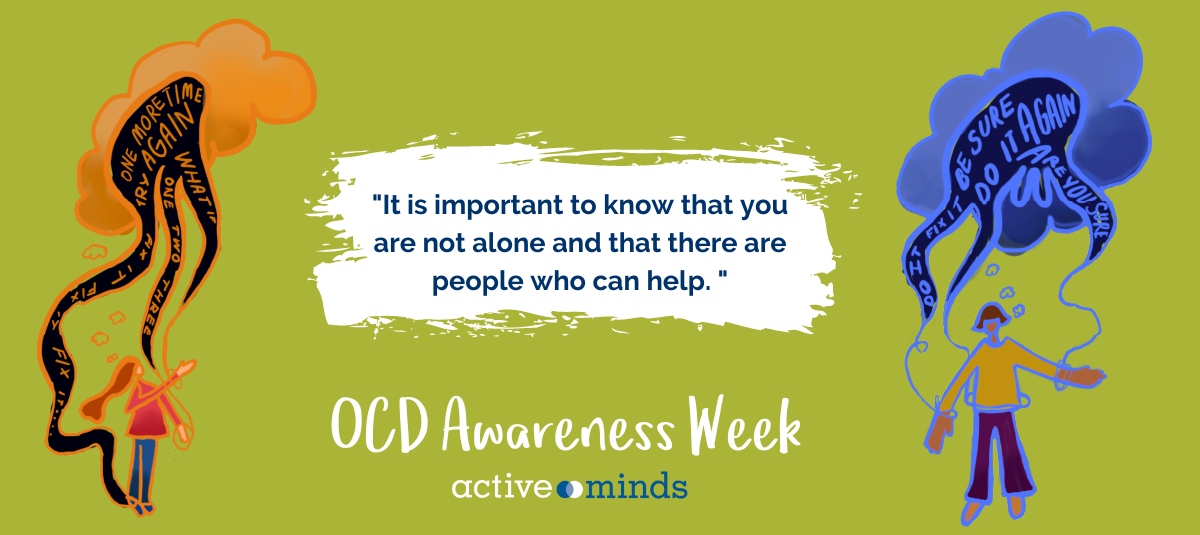I am living with excoriation disorder, a form of OCD, and I have for as long as I can remember. I always thought that the constant skin picking on my hands was just a nervous tick – until I did some research on mental illness. My symptoms matched every single one listed for excoriation disorder, and it suddenly made perfect sense. My symptoms included:
- Skin picking resulting in lesions
- Attempts to stop or lessen skin picking
- Dysfunction or clinically significant distress due to skin picking
I had never heard of excoriation disorder but found that it fell underneath the broader category of OCD. OCD, or obsessive-compulsive disorder, is a mental health condition characterized by intrusive, unwanted thoughts and repetitive behaviors that tend to lead to dysfunction. OCD affects only 1.2% of the United States population – but despite its low commonality, it can cause significant distress and disruptions in everyday life that can make it more visible than other forms of mental illness. Many people don’t realize that there are other conditions that are considered to be a type of OCD. These include:
- Excoriation Disorder
- Body Dysmorphic Disorder
- Trichotillomania
- Hoarding Disorder
At last, I felt validated – even if that meant simply an acknowledgment that what I was experiencing was real. Despite this validation, I didn’t yet feel comfortable sharing what I was going through. My symptoms persisted, and it felt as if no one but me knew anything about excoriation disorder – I never saw anyone talk about it. The shame and embarrassment that came with picking the skin on my hands were on a constant feedback loop. Exams and big deadlines caused stress which in turn made my skin picking more common and worse, which then made me feel terrible whenever I caught myself picking. For hours on end in the evening, I sit at my computer hardly able to put any work in because I was too distracted (it’s taken me so long to even write this!) by picking at my fingers. The worst is when someone points out my raw, sometimes bloodied knuckles and asks if I’ve been punching walls or burned myself. This has led to me hiding my hands in public by keeping them under the table or putting them in my pockets. At times, it is so overwhelming that I just shut down.
Seeking out treatment can be hard, especially in the case of excoriation disorder., where it’s easy to feel like the constant skin picking is just a bad habit and not worth the time of a therapist. But, just like any other form of OCD, excoriation disorder can cause significant distress and derail life at school, at work, and with friends. It is important to know that you are not alone and that there are people who can help. I took advantage of virtual therapy at the height of the pandemic, and it felt so great to finally talk to someone about what I had been experiencing.
As I have continued to navigate daily life living with OCD, I’ve learned more about what’s available to help me. Although excoriation disorder is not known to many, treatments do exist. It’s common for behavioral interventions like habit-reversal therapy (HRT) and acceptance and commitment therapy (ACT) to be used to decrease or stop skin picking. Antidepressant medications have also been found to be effective. I also found that targeting the stress (such as by going out of my way to enjoy the sights and sounds of nature and regularly lifting weights at the gym) that led to increased skin picking helped to decrease the compulsions. Other techniques to manage might include clenching your fist or diverting your hands to other parts of your body where skin picking doesn’t occur (e.g. the ear) when you feel urges.
Like many forms of mental illness, accepting and seeking treatment for my excoriation disorder is a work in progress, but in the meantime, I will continue to speak out about it so that others know they are not alone.




